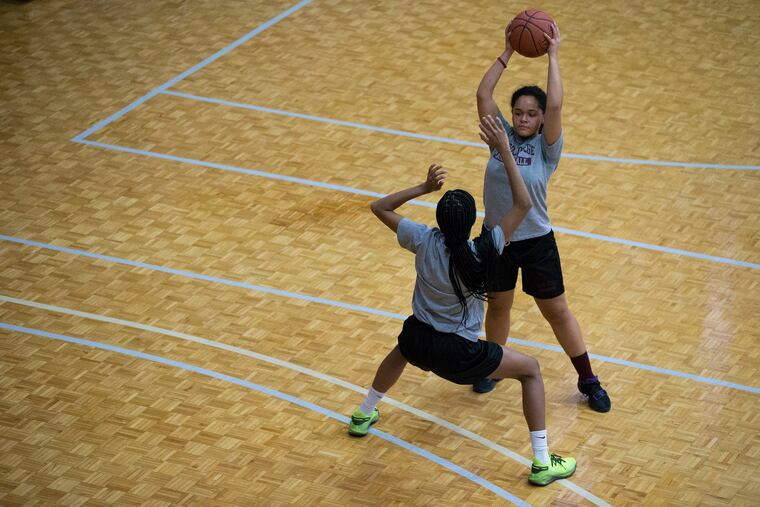Philadelphia’s high school athletes should be hungry only for a win | Editorial
An Inquirer investigation found that many Philadelphia high school athletes are good insecure. That's an avoidable tragedy.

When local high school athletes make it big in college or get signed by a pro team, Philly embraces them as hometown heroes. But for many athletes, the strongest memory of the years of playing and training in a Philadelphia high school is of an empty stomach.
The Inquirer’s Aaron Carter spent more than a year investigating food insecurity among high school athletes in Philadelphia. Carter documents how prevalent food insecurity is among athletes who put themselves through unhealthy regimes to stay fit and work for a chance at a college scholarship.
Many teenagers in Philadelphia, especially black teenagers who grow up in poverty, believe that sports is their only chance to “beat the odds” and go to college or get a high-paying job. The training and being a part of a team also becomes a refuge in a childhood that might otherwise be defined by despair.
Philadelphia’s gun violence — in 2019 a person under 18 was shot on average every four days — means that high school-aged teenagers often carry trauma. Because of Philly’s high rates of drug addiction and incarceration, many athletes don’t have the privilege of only focusing on their academics and practices. Some told Carter that they skipped meals out of a sense of responsibility to their families, and saved the food to share at home later.
» READ MORE: 'We didn't have a stove, refrigerator, water': Beating the odds of food insecurity in Philadelphia
» READ MORE: Hunger Games Series (Part One): Greg Garrett, gym owner, once at gum off the ground as a child.
Food insecurity is not unique to athletes.
A 2018 report by Hunger Free America, a national nonprofit, the number of people living in hunger in Philadelphia increased by 22% in recent years — at the same time nationally the number has been declining. According to Feeding America, another national nonprofit, there were about 73,000 children who were food insecure in Philadelphia in 2017. The recent decision by the Trump administration to roll back food stamps eligibility is likely to make things even worse.
The cost of college is not helping with either poverty or food insecurity. Pennsylvania tops the nation for student-debt burden. In a city with a median household income of $46,116, whether in-state college tuition is $16,000 or a million dollars a year is immaterial. For families in poverty, neither are attainable.
» READ MORE: New food stamp rule says if you don’t work, you can’t eat | Editorial
Food insecurity among high school athletes is an example of the collision of multiple problems: poverty, a narrow path to opportunity, the availability of affordable and healthy food, and the rising cost of college. Addressing the problem would require investments both in closing the meal gap today — such as investing in Philabundance’s ambitious plan to end hunger in Philly — and in poverty alleviation efforts.
No teenager living in the richest country on Earth should have to skip a meal. It’s an avoidable tragedy. But there is another reason to care about food insecurity among high school athletes.
For youth growing up in poverty, the temptation of the illegal economy is at every corner. Even when taking into account the risk of arrest and incarceration, selling drugs seems like a safer bet to accumulate some wealth than a minimum wage job. Sports provide teenagers with a different path to success, fulfillment, and potentially a career. Every teenager who picks up a ball instead of gun is a major win.